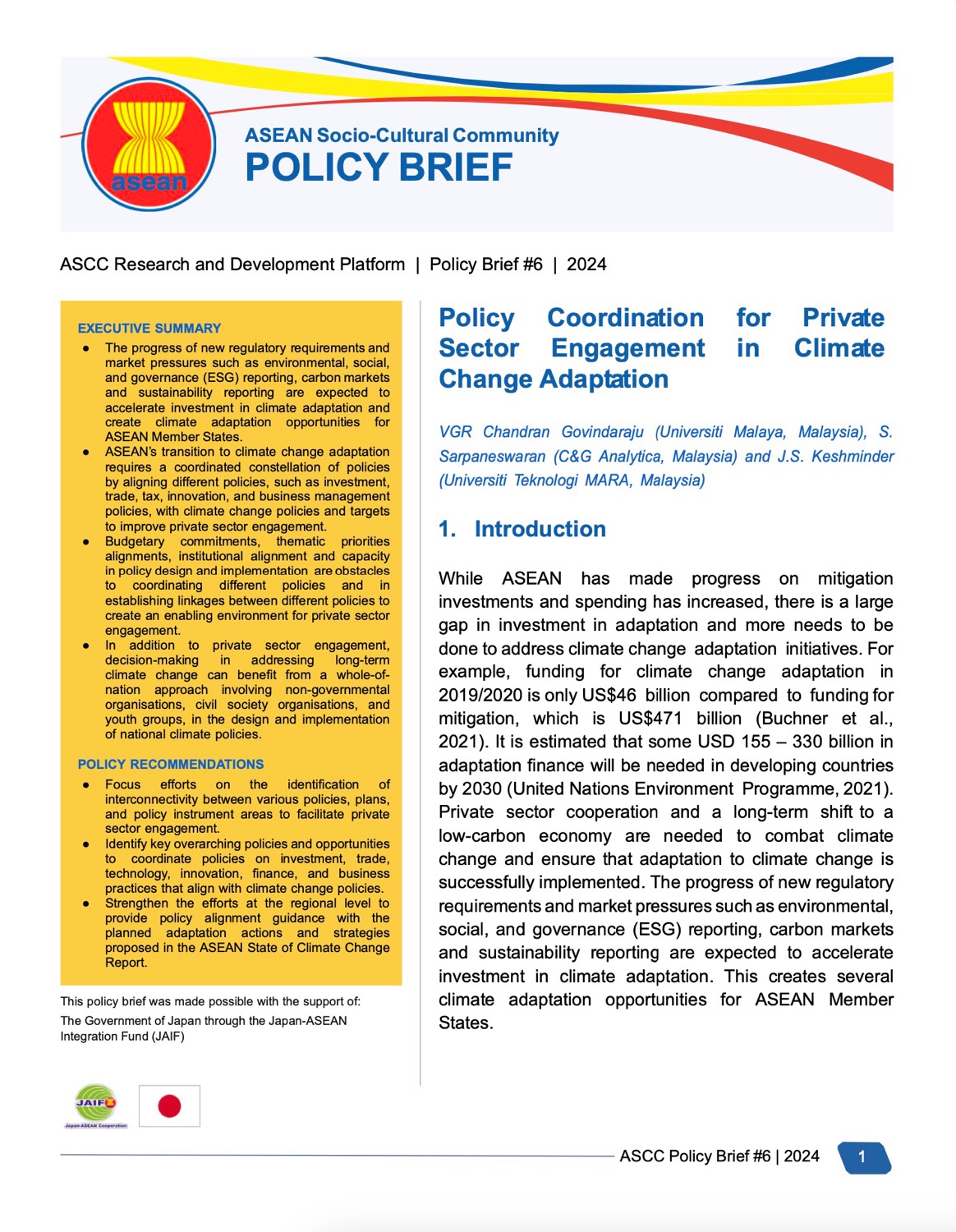

EXECUTIVE SUMMARY
- The progress of new regulatory requirements and market pressures such as environmental, social, and governance (ESG) reporting, carbon markets and sustainability reporting are expected to accelerate investment in climate adaptation and create climate adaptation opportunities for ASEAN Member
- ASEAN’s transition to climate change adaptation requires a coordinated constellation of policies by aligning different policies, such as investment, trade, tax, innovation, and business management policies, with climate change policies and targets to improve private sector
- Budgetary commitments, thematic priorities alignments, institutional alignment and capacity in policy design and implementation are obstacles to coordinating different policies and in establishing linkages between different policies to create an enabling environment for private sector
- In addition to private sector engagement, decision-making in addressing long-term climate change can benefit from a whole-of- nation approach involving non-governmental organisations, civil society organisations, and youth groups, in the design and implementation of national climate
POLICY RECOMMENDATIONS
- Focus efforts on the identification of interconnectivity between various policies, plans, and policy instrument areas to facilitate private sector
- Identify key overarching policies and opportunities to coordinate policies on investment, trade, technology, innovation, finance, and business practices that align with climate change
- Strengthen the efforts at the regional level to provide policy alignment guidance with the planned adaptation actions and strategies proposed in the ASEAN State of Climate Change
Share







